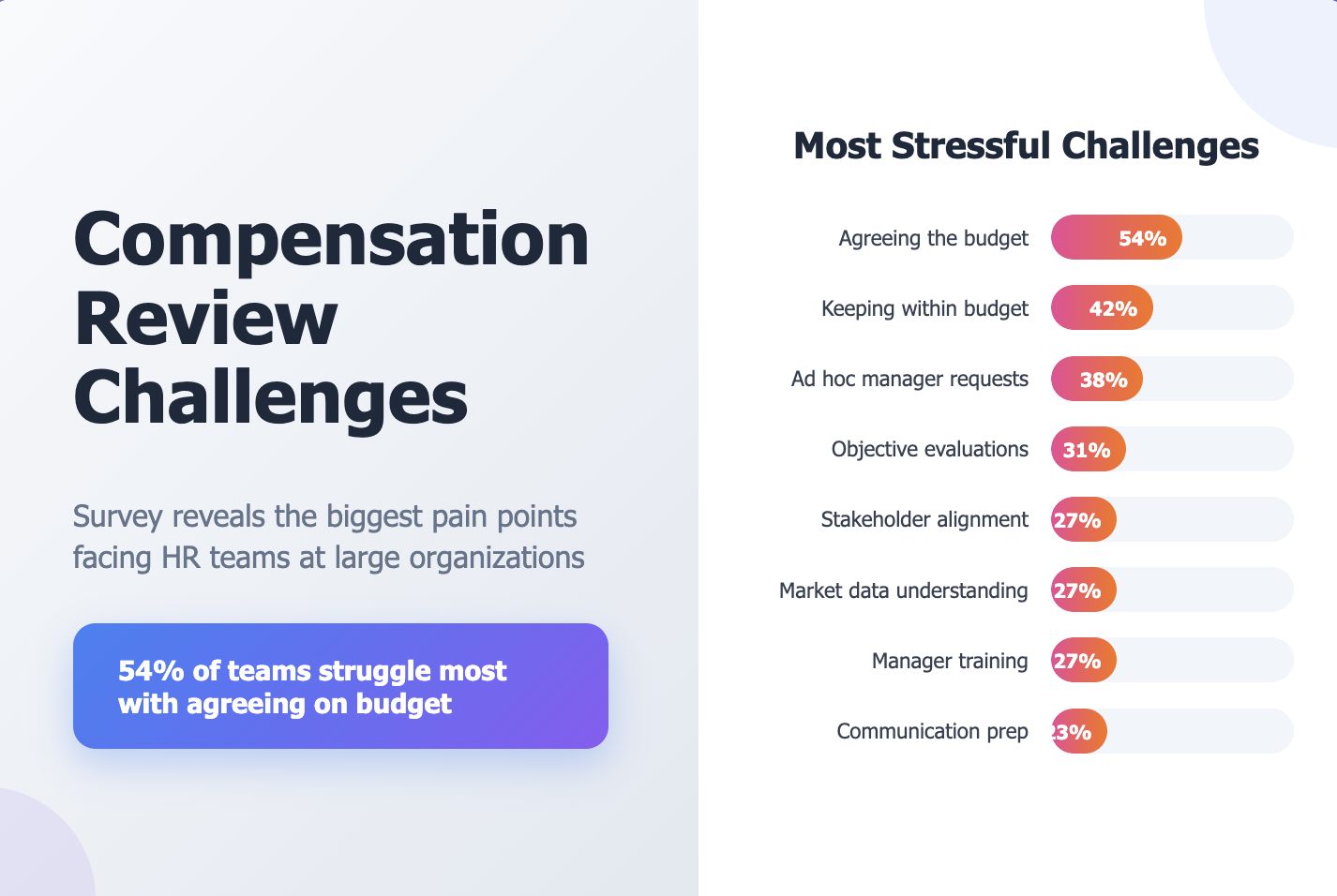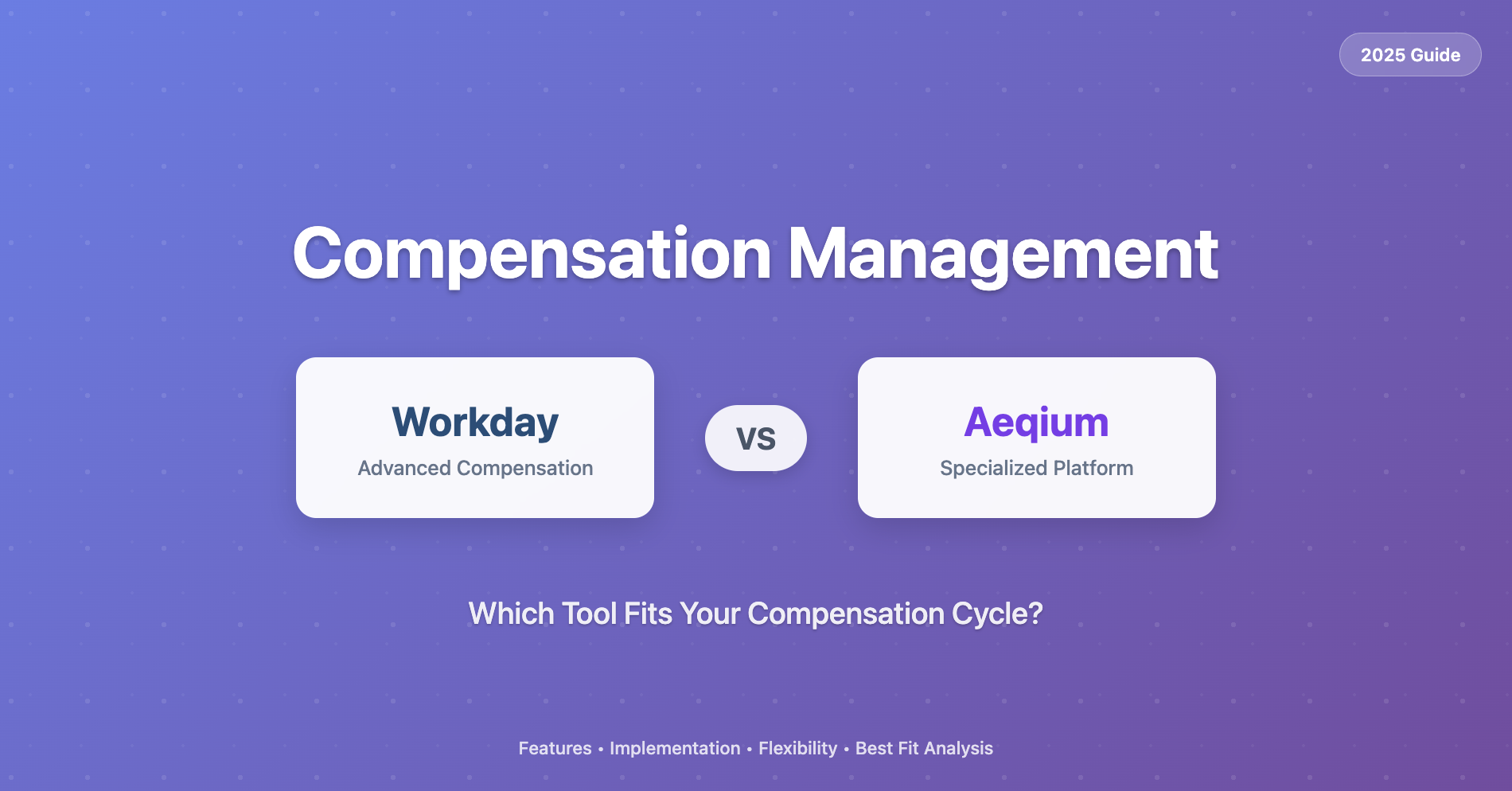Compensation Management, Culture & Clarity: The New Standard for 2025

Compensation Management, Culture & Clarity: The New Standard for 2025
At Aeqium, we believe how you pay people says everything about who you are — not just how much, but how clearly, how fairly, and how well it aligns with your values and goals.
In 2025, compensation management is no longer just an HR function. It's a strategic lever for:
- Building culture
- Retaining top talent
- Driving performance
- Reinforcing trust
Done right, compensation builds clarity and engagement. Done poorly, it creates confusion and churn.
Rethinking Compensation Strategy
Today’s leaders understand that compensation is more than pay — it’s total value: base salary, equity, benefits, incentives, and how that value is communicated.
Strategic compensation drives:
- Retention and performance
- Transparency and fairness
- Confidence in management and leadership
It’s no longer a one-time process — it’s an ongoing strategy that evolves with your business.
Direct vs. Indirect Compensation
Effective strategies balance both:
Direct compensation: Salaries, bonuses, stock options — pay tied to outcomes.
Indirect compensation: Health insurance, time off, retirement plans, flexible work — what enhances quality of life.
Employees don’t just care about salary. They care about the full picture. And companies that communicate total value win.
Smarter Compensation Planning
Winning teams prioritize:
- Real-time market benchmarks
- Internal equity and pay transparency
- A clear, living compensation philosophy
- Ongoing pay equity analysis
With the right tools, HR can ensure every decision supports performance, fairness, and culture.
Why Communication Matters
Even the best strategy fails without clear communication. Employees want context. Managers need clarity.
Great compensation communication is:
- Manager-ready
- Easy to understand
- Consistent and transparent
This builds trust, drives retention, and reduces confusion.
Your Compensation Philosophy
A clear philosophy keeps your team aligned. It should define:
- What fair, competitive pay looks like
- How comp supports company goals and values
- How you balance internal equity and market data
- Your approach to transparency
It’s not a static policy — it’s a guiding framework.
Fair Pay Best Practices
To ensure fairness and competitiveness:
- Benchmark regularly
- Review internal equity across teams
- Address disparities proactively
- Evolve your approach as your company grows
Fair comp builds loyalty and long-term engagement.
How Aeqium Helps
Aeqium modernizes how companies manage and communicate compensation through fully customizable compensation management software.
We help you:
- Align pay with performance and values
- Make total comp clear across every level
- Empower managers with real-time insights
- Eliminate spreadsheet chaos with structured workflows
Aeqium makes compensation a source of clarity — not confusion.
What’s Ahead
Compensation in 2025 is being shaped by:
- Smarter, automated tools
- Stronger pay equity practices
- Personalized, real-time communication
- Integration with performance data
The companies embracing these shifts will lead in talent attraction and retention.
The Culture & Compensation Series
We’re spotlighting companies raising the bar in compensation strategy — not as a leaderboard, but as inspiration.
In each post, we’ll explore:
- How they approach total compensation
- What tools they use
- How they empower teams
- How comp strengthens their culture
If your team is leading in this space, we’d love to feature you.
Because in 2025, smart compensation is smart leadership.
Let’s build it right — together.
Compensation Management FAQ
To further support your strategy, here are answers to some of the most common questions we hear from HR teams and leaders:
What is compensation management?
Compensation management is the strategic process of planning, structuring, and communicating employee compensation, including salary, bonuses, equity, and benefits. It ensures pay aligns with performance, market benchmarks, and internal equity.
Why is compensation strategy important for retention?
Clear, fair, and competitive compensation helps organizations retain top talent by building trust, supporting engagement, and showing employees they’re valued.
How can companies ensure pay equity?
Start by auditing compensation data regularly. Look at pay across roles, departments, and demographics. Address gaps transparently, and standardize comp decisions based on objective criteria.
What tools help with compensation planning?
Compensation management platforms like Aeqium help automate benchmarking, manage pay reviews, visualize total comp, and empower managers with the data they need — all while maintaining transparency and control.
How often should compensation be reviewed?
At minimum, conduct annual reviews. But leading companies are shifting toward real-time or biannual adjustments, especially for fast-growing teams or competitive markets.




